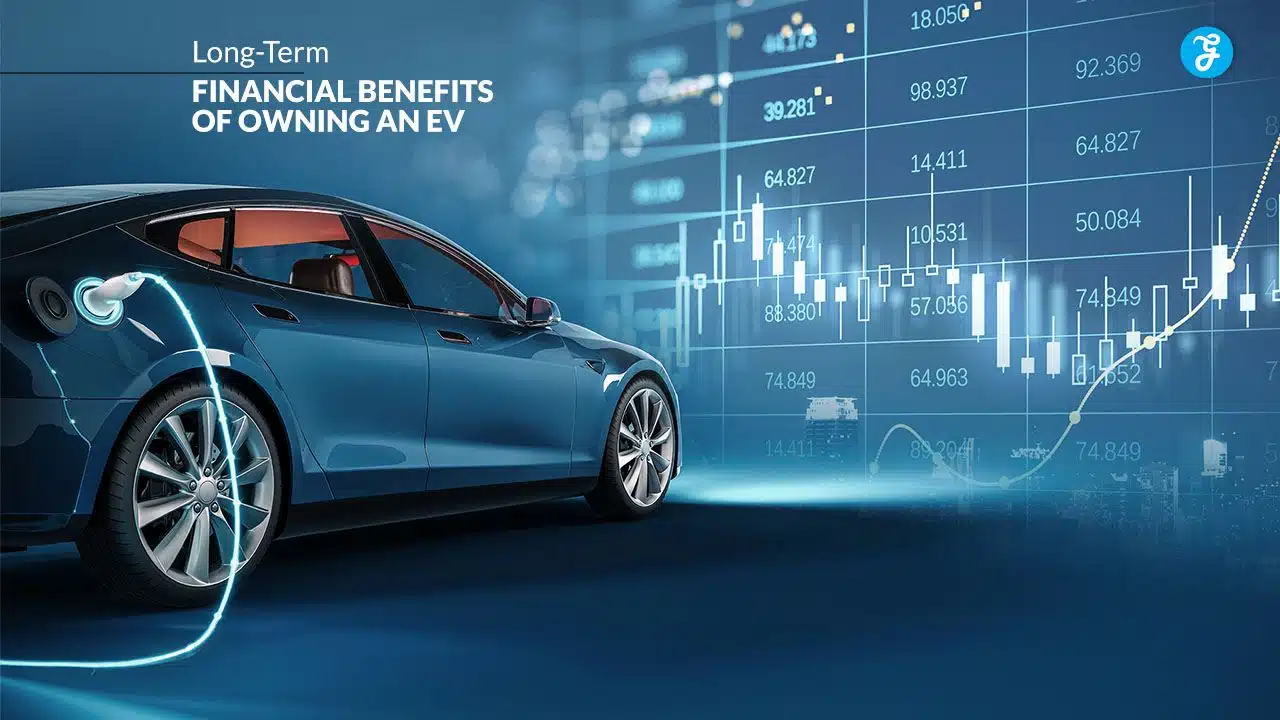Electric vehicles (EVs) are no longer just a vision of the future—they’re quickly becoming the standard for modern transportation. With increasing environmental awareness and rising fuel prices, EVs offer an attractive alternative to traditional gasoline-powered vehicles. But while the environmental benefits of EVs are well-known, their long-term financial advantages often don’t get the attention they deserve.
For drivers looking to save money while making a sustainable choice, EVs provide numerous financial incentives that outweigh their higher upfront cost. Whether it’s through reduced fuel and maintenance costs or government incentives, owning an EV is a smart financial decision. In this article, we’ll explore the 10 long-term financial benefits of owning an EV, providing data-backed insights to help you make an informed decision.
1. Lower Fuel Costs: Electricity Is Cheaper and More Stable
Why It’s Important
One of the biggest savings EV owners experience is on fuel. Gasoline prices can fluctuate dramatically due to global market forces, while electricity costs are generally stable and much lower.
How Much Can You Save?
EVs consume an average of 30 kWh per 100 miles, costing about $0.04–$0.06 per mile to operate. In contrast, gasoline cars cost around $0.12–$0.15 per mile. For drivers covering 12,000 miles annually, that’s a savings of over $1,000 per year.
| Vehicle Type | Cost per Mile | Annual Fuel Cost (12,000 miles) |
|---|---|---|
| Gasoline Vehicle | $0.12–$0.15 | $1,440–$1,800 |
| Electric Vehicle (EV) | $0.04–$0.06 | $480–$720 |
Pro Tip: Charge your EV during off-peak hours to reduce electricity costs even further.
2. Reduced Maintenance Costs: Fewer Parts, Fewer Repairs
Why It’s Important
Electric vehicles have far fewer moving parts compared to internal combustion engine (ICE) vehicles, which means fewer things can go wrong.
What Are the Savings?
- No Oil Changes: Gasoline vehicles require oil changes every 3,000–5,000 miles, costing $50–$100 per service. EVs don’t use oil, so you can skip this entirely.
- Brake Longevity: Regenerative braking reduces wear on brake pads, often doubling their lifespan compared to traditional cars.
- No Exhaust System Repairs: EVs lack components like mufflers and catalytic converters, eliminating the risk of costly exhaust repairs.
| Maintenance Task | Gasoline Vehicle Cost | EV Cost |
|---|---|---|
| Oil Changes (annually) | $100–$300 | $0 |
| Brake Pad Replacement | $250–$500 | $100–$200 |
| Annual Maintenance Total | $1,200–$1,500 | $300–$500 |
Pro Tip: Follow your EV manufacturer’s recommended maintenance schedule to keep costs low and ensure warranty coverage.
3. Tax Credits and Government Incentives
Why It’s Important
Governments worldwide are offering incentives to encourage EV adoption, making them more affordable for buyers.
Examples of Incentives
- United States: Federal tax credit of up to $7,500 for eligible EVs, with additional state-specific incentives.
- European Union: Subsidies range from €3,000 to €6,000, depending on the country.
- Canada: Offers rebates of up to CAD 5,000 on EV purchases.
- India: Reduced GST rates and incentives under the FAME II scheme.
How It Saves Money
Combining federal and state incentives can significantly reduce the upfront cost of your EV, making it competitive with traditional gasoline vehicles.
4. Lower Total Cost of Ownership (TCO)
Why It’s Important
Although EVs often have a higher sticker price, their reduced operational and maintenance costs lead to a lower total cost of ownership over time.
TCO Savings Breakdown
- Fuel Costs: Up to 70% less than gasoline vehicles.
- Maintenance Costs: Up to 60% less due to fewer parts and longer service intervals.
- Resale Value: EVs retain more value in markets with high demand and robust charging infrastructure.
According to the International Council on Clean Transportation (ICCT), EV owners save $6,000–$10,000 over five years compared to ICE vehicle owners.
5. Energy Independence with Renewable Sources
Why It’s Important
Owning an EV gives you the flexibility to use renewable energy sources like solar or wind power to charge your vehicle. This reduces dependency on fossil fuels and further lowers energy costs.
How to Maximize Savings
- Install Home Solar Panels: Pairing an EV with solar panels can provide free electricity for charging.
- Utilize Utility Discounts: Many energy providers offer lower rates for EV owners, especially for off-peak charging.
6. Avoiding Emissions-Related Costs
Why It’s Important
Governments and cities are increasingly imposing emissions-related fees and restrictions on gasoline vehicles. EV owners are typically exempt from these charges.
Examples of Savings
- Congestion Charges: In London, EVs are exempt from the daily £15 congestion charge, saving drivers up to £3,500 annually.
- Lower Registration Fees: Many states and countries offer reduced vehicle registration fees for EVs.
7. Extended Battery Life: Built to Last
Why It’s Important
Battery longevity is a key factor in the overall cost of EV ownership. Advances in battery technology mean that modern EV batteries last longer, reducing the likelihood of costly replacements.
Battery Lifespan Facts
- Most EV batteries last 10–20 years or up to 200,000 miles.
- Many manufacturers provide warranties covering battery health for 8–10 years or 100,000 miles.
8. Free or Discounted Charging
Why It’s Important
Many employers, governments, and businesses offer free or subsidized charging options to promote EV adoption.
Where to Save
- Workplace Charging: Many companies provide free EV charging for employees.
- Public Charging Stations: Some municipalities offer free public charging or discounts for residents.
9. High Resale Value in Emerging Markets
Why It’s Important
Demand for used EVs is growing rapidly, especially in regions with limited new EV availability. This means EVs retain their value well if properly maintained.
Factors That Boost Resale Value
- Battery Health: Well-maintained batteries command higher resale prices.
- Brand Strength: Brands like Tesla and Hyundai are popular in the used EV market.
10. Lower Insurance Premiums for EVs
Why It’s Important
Some insurers offer discounts for EVs due to their advanced safety features and lower environmental impact.
How Much Can You Save?
EV owners can save 10–15% on insurance premiums compared to ICE vehicle owners, especially when opting for green vehicle discounts.
Takeaways: The Financial Advantages of Owning an EV
Investing in an EV isn’t just about driving a cleaner, greener vehicle—it’s a financial strategy that pays off over time. From dramatically lower fuel and maintenance costs to government incentives and higher resale value, EVs offer a range of economic benefits that traditional vehicles can’t match.
By switching to an EV, you’re not only saving money but also contributing to a sustainable future. The world is moving toward greener transportation, and making the switch now ensures you stay ahead—both financially and environmentally.










































